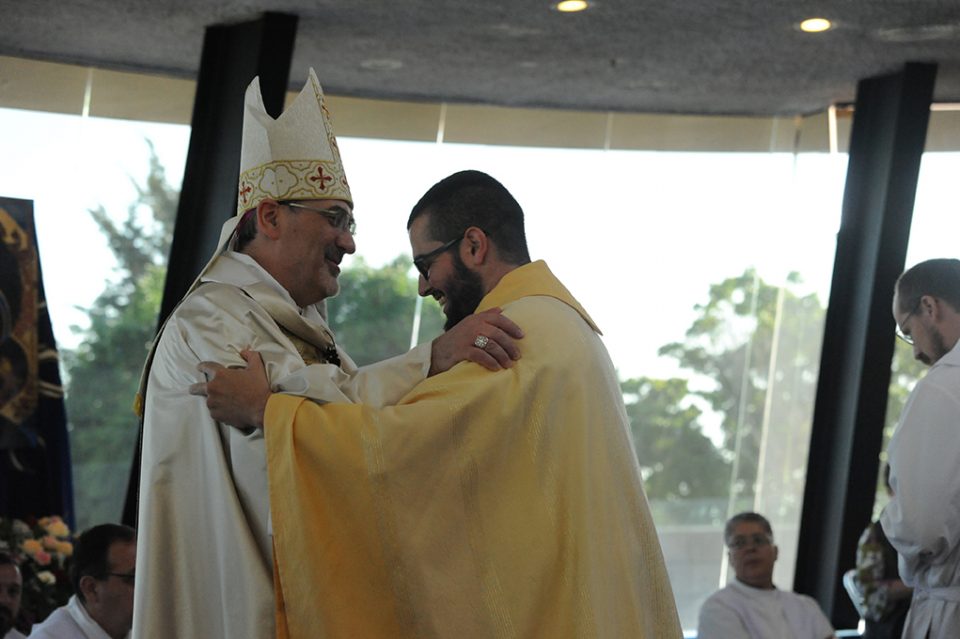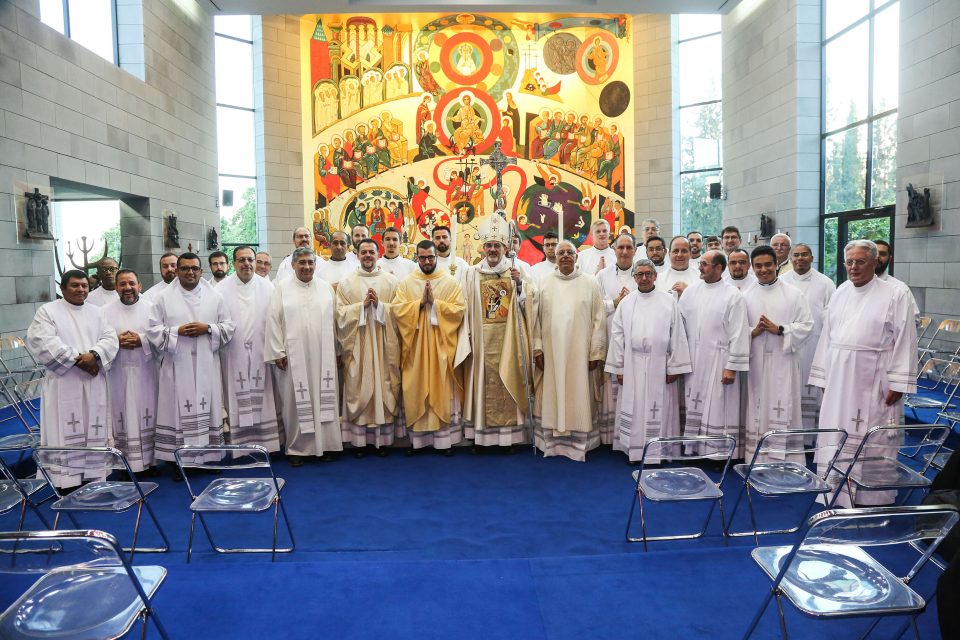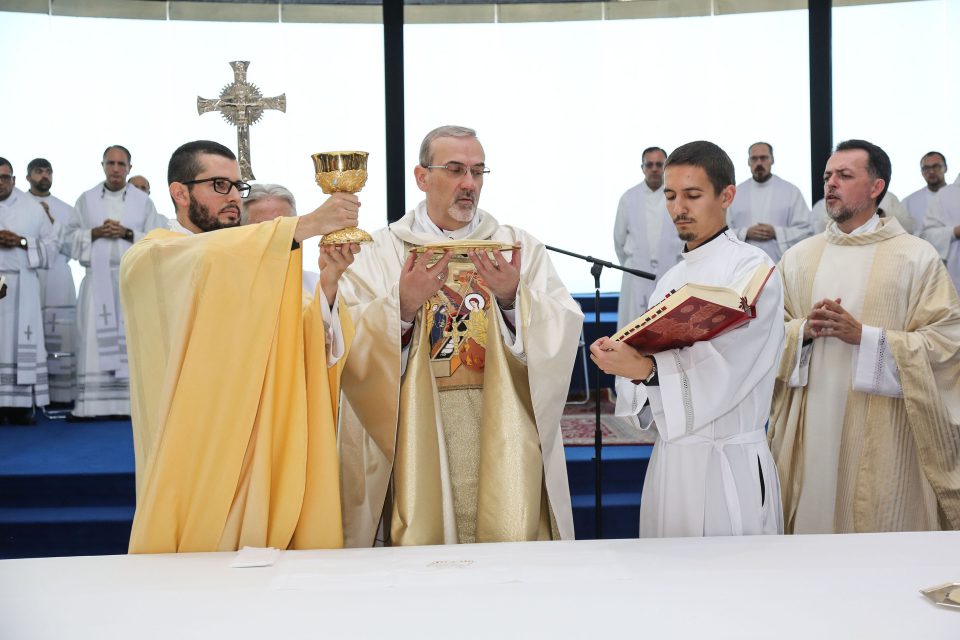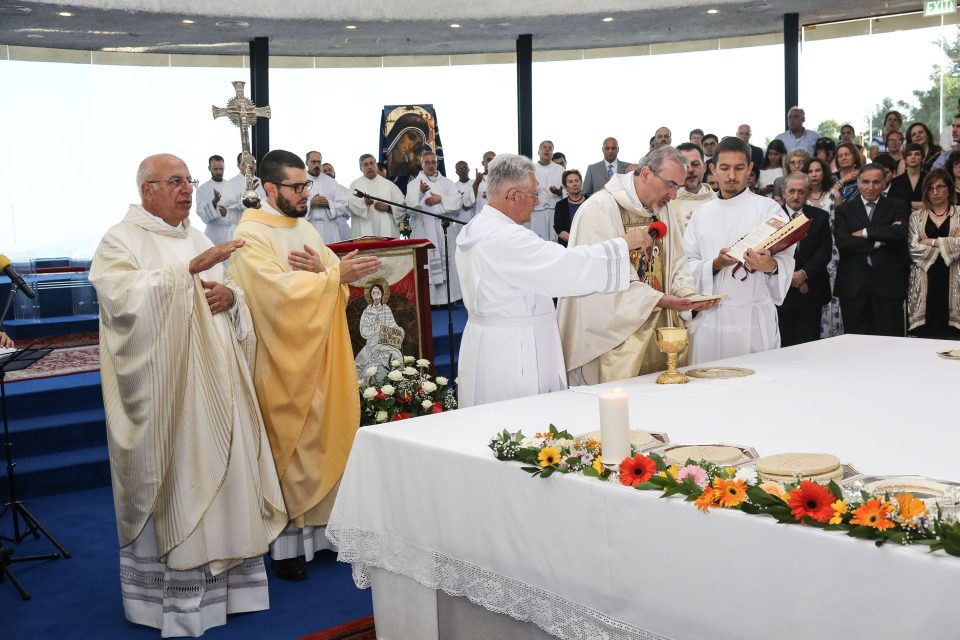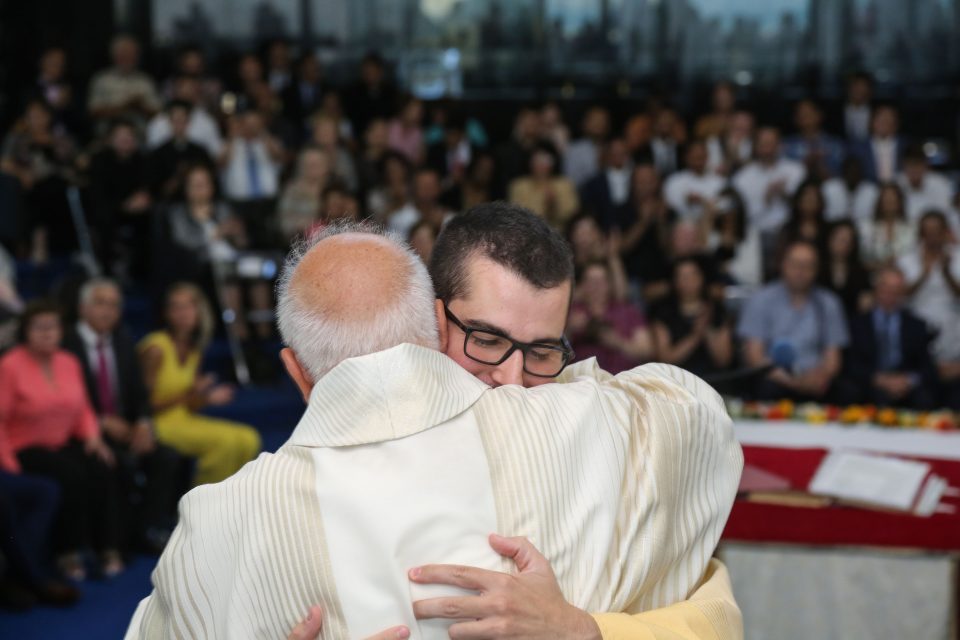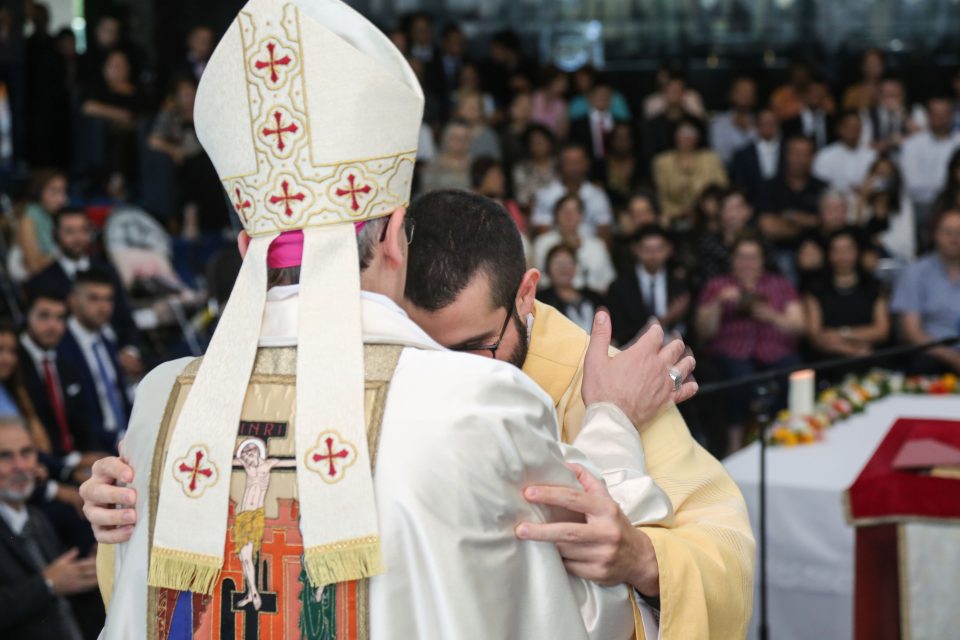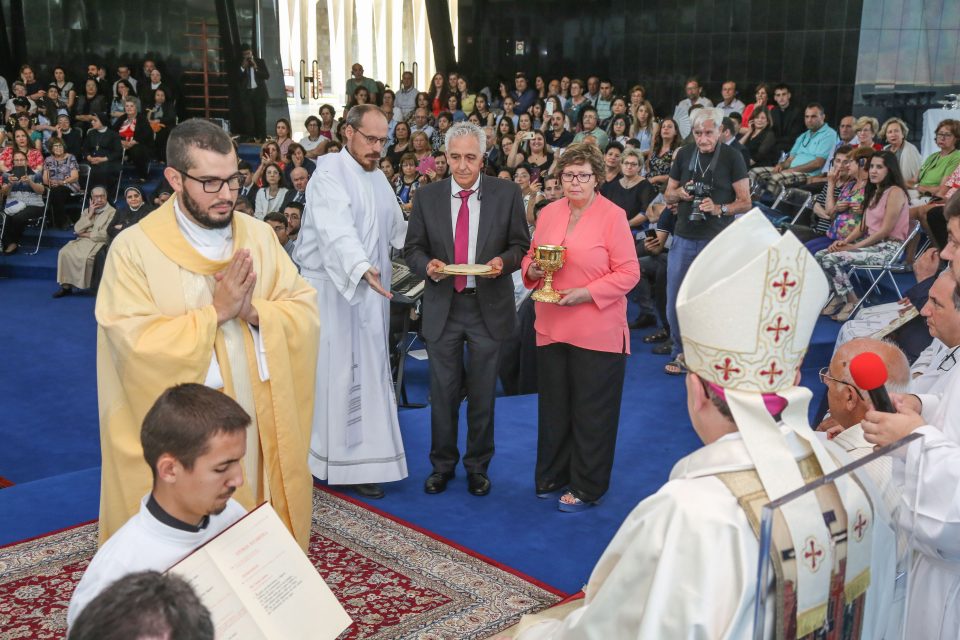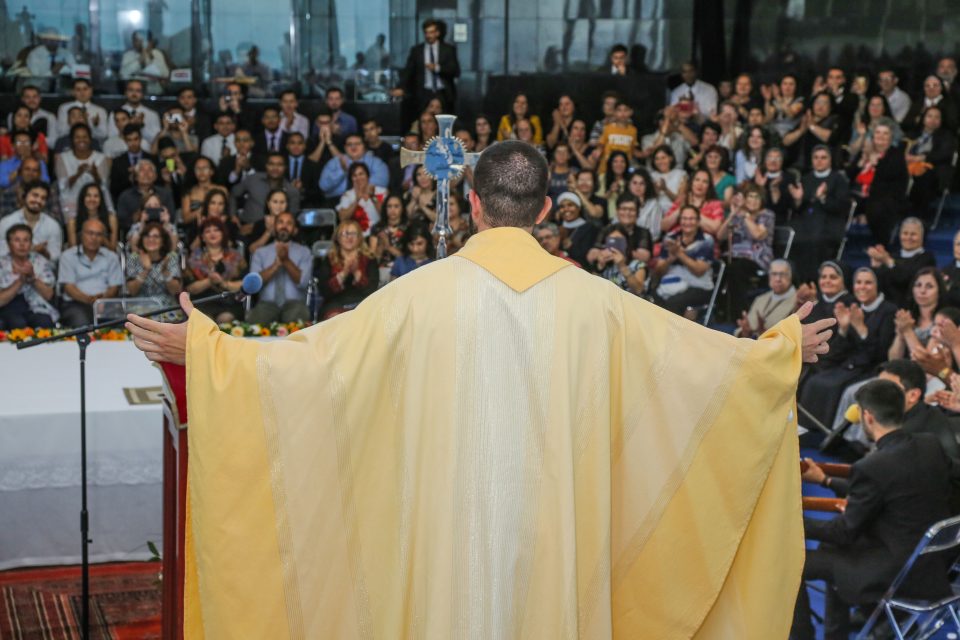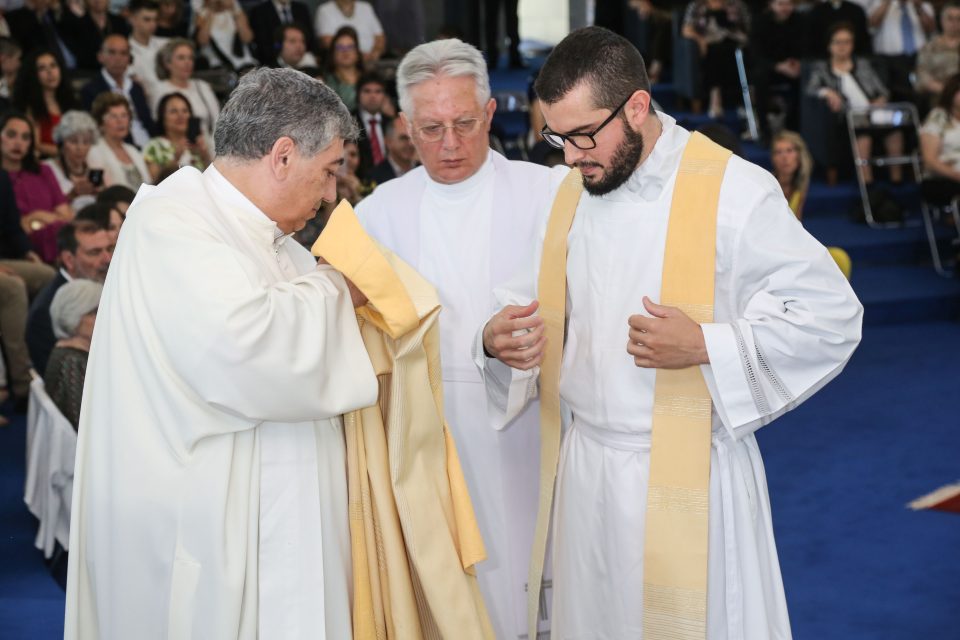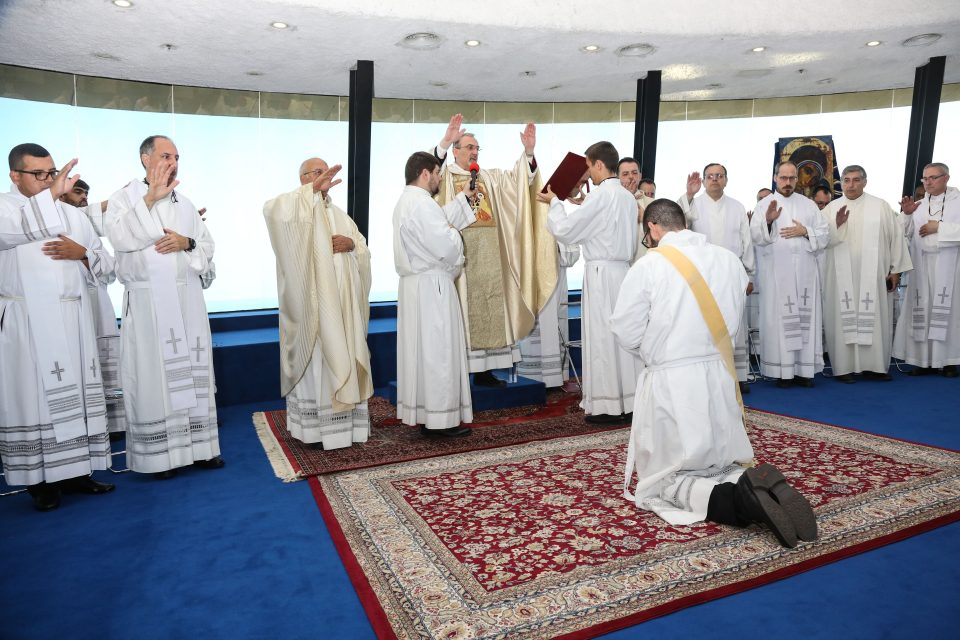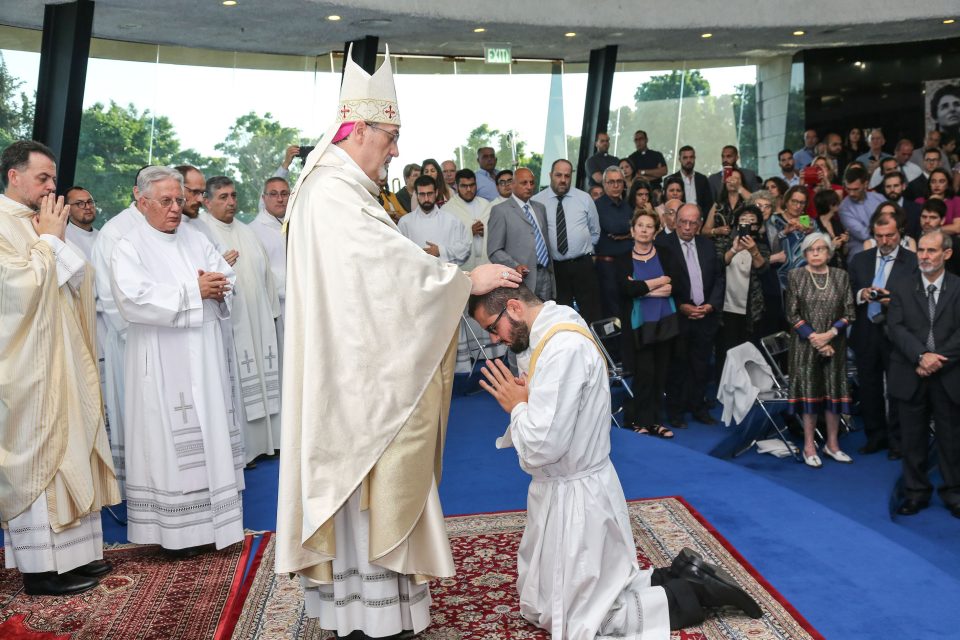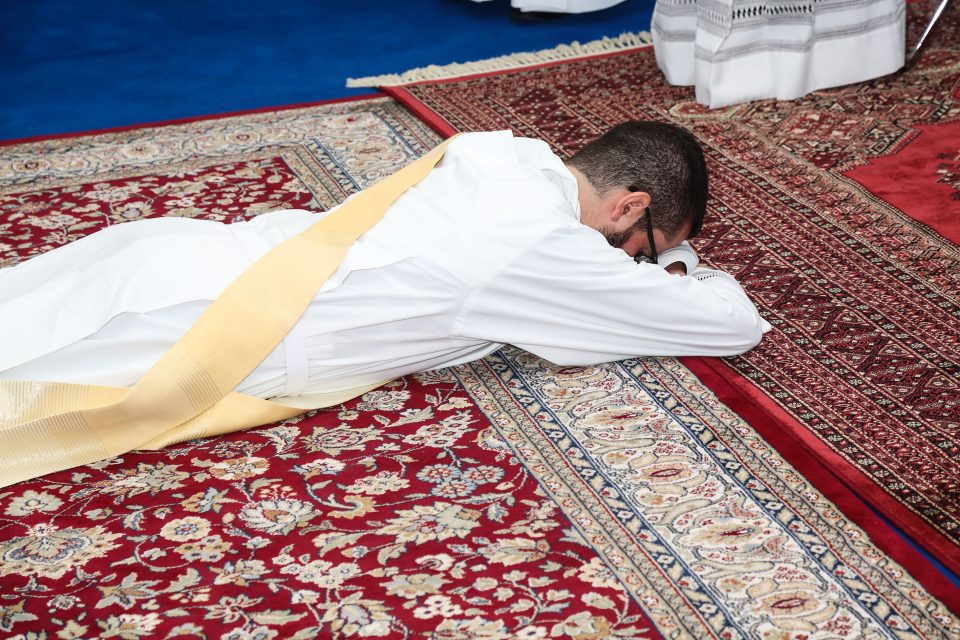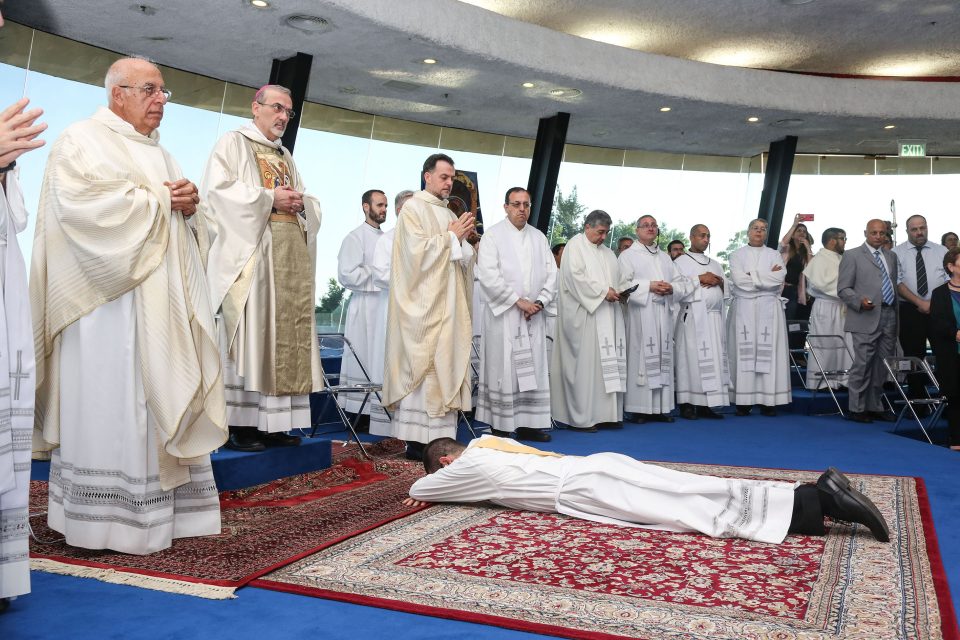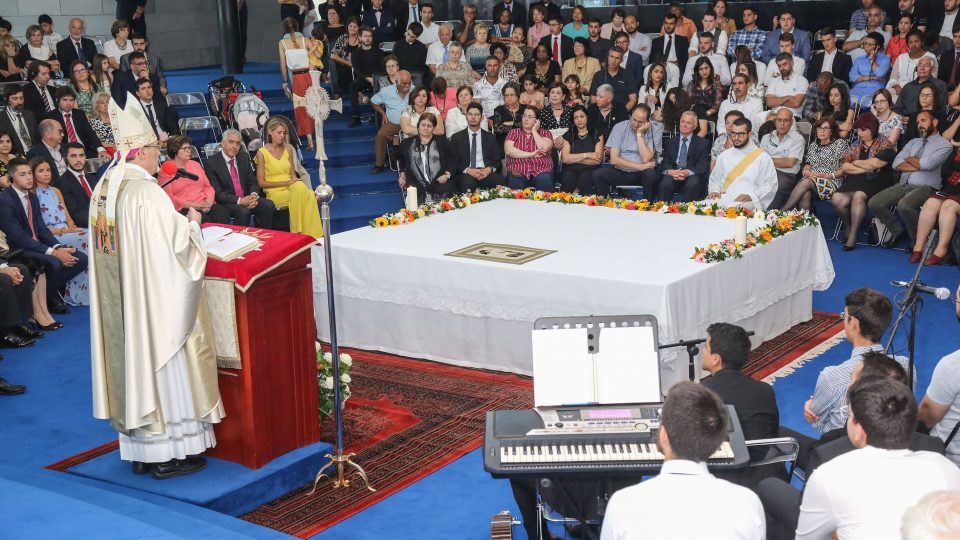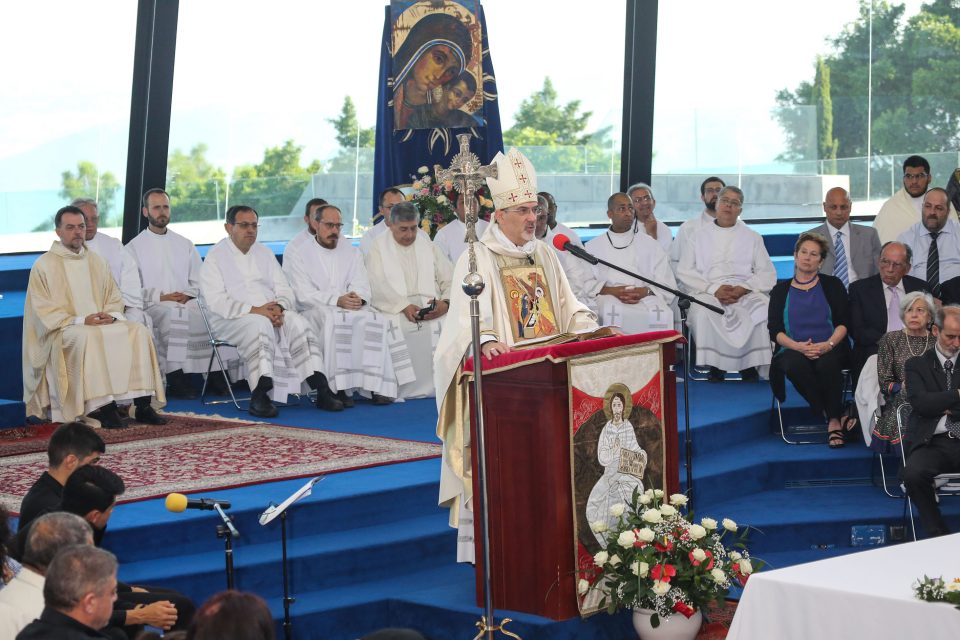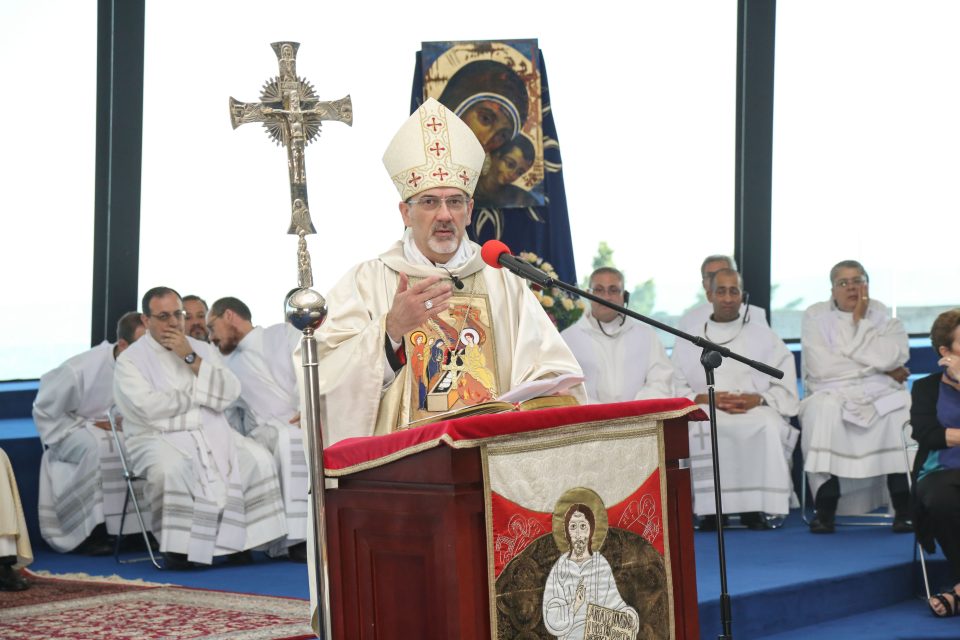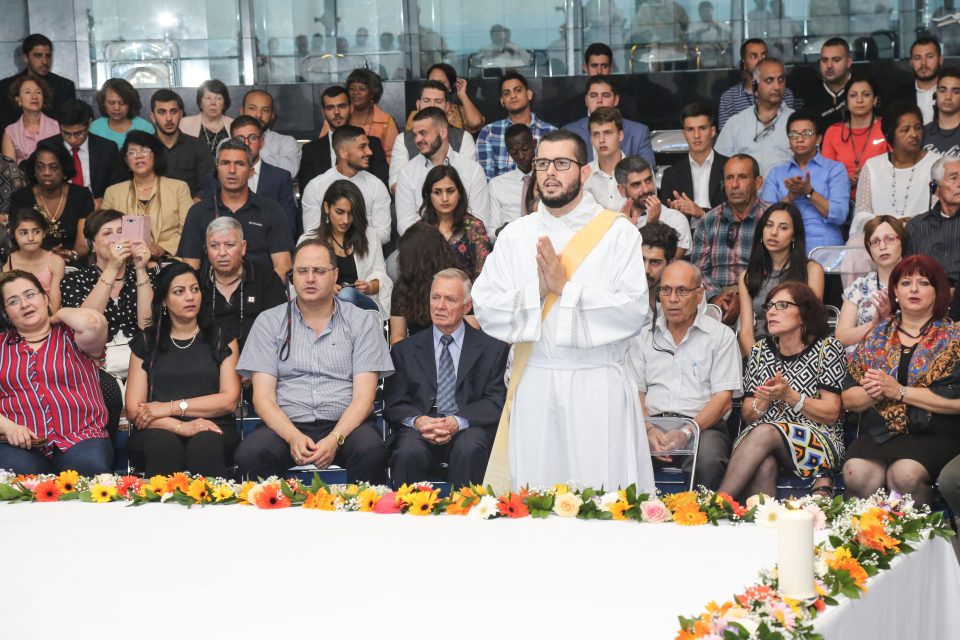On Sunday the 23rd of June 2019,on the Solemn feast of Corpus Domini at the Church of the Twelve Apostles in the Domus Galilaeae in Korazym Israel, a celebration of the priestly ordination of the spaniard Javier Martinez Alcalà took place, who was formed in the Redemptoris Mater Seminary of Galilee. His ordination was conferred by the Apostolic Administrator of the Latin Patriarchate of Jerusalem, H.Em. Msgr Pierbattista Pizzaballa.
At the ceremony prepared with grand style in the evocative ambiences of the Domus Galilaeae, on the Mount of Beatitudes, among those present were the Patriarchal Vicar for Israel, the Most Rev. Fr. Hanna Kildani, numerous priests of the Latin Patriarchate and parish priests of Galilee, religious men and women, professors and formators of the Redemptoris Mater seminary as well as some young priests from the same seminary, who came from Jordan. A large group of guests from Spain also participated in the celebration, including the parents and family members of the new presbyter, numerous brothers and sisters from his Neocatechumenal community, as well as other groups of faithful from the Neocatechumenal Way of Galilee and Spain. Likewise the celebration included the participation of friends and faithful who came together with their parish priest for the occasion from the Parish of Shefamer, where the new presbyter carried out his diaconal ministry this year, as well as from the parish of Rafidiah (Nablus) and from that of Eilat, where Javier did a time of pastoral experience.
Among the most moving moments of the celebration, wich was very much attended in a climate of profound emotion and gratitude, were the Bishop’s call to the young man to whom the candidate responded with the biblical expression: “Here I am!”; alongside the moment of prostration during the singing of the Litany of the Saints, when the whole Christian community grateful for God’s election of a servant in the presbyterate, solemnly asks for his blessing and protection at a time of profound union with the heavenly Church; not to mention the laying on of hands at the peak of the celebration, complemented by the anointing as a sign of the definitive and indelible consecration of the priest in the service of the Church, and finally the sign of the vestment with priestly clothes, as the candidate was aided by his Parish Priest, Fr. Eli Kurzum.
Of great theological significance was the homily of Msgr. Pizzaballa which, inspired by the Gospel passage offered by the liturgy of the feast of Corpus Domini, focused on the multiplication of the loaves and fish (Lk 9:12).
The first point of the passage taken in analysis was that of the hunger of the people who followed Jesus, who, as the Bishop said, despite being tried by heat, thirst and long stay in the desert, points out “the different types of” hunger “present in the world today, which we try to satisfy. Among these, we must ask ourselves, if we feel the need, in our life, of Jesus Christ who alone can fill every need deep within ourselves, since the only food that can satisfy is the Eucharist, the nourishment that fills every void, every need “.
The other element pointed out by the Bishop in his meditation was poverty, an obstacle to the extreme need of the crowd that followed Jesus to satisfy their basic needs; the precariousness of the conditions in which they found themselves in. Faced with this need, said Msgr. Pierbattista, “the remedy suggested by the disciples is very simple: everyone goes away and looks for the solution to these problems. Jesus’ answer however is the opposite: let the people stay and let what little they have be shared by all.” This is an invitation that is humanly impossible to achieve, the celebrant added, but which Jesus resolves by completing the miracle of the multiplication of the loaves and fishes, because “in times of need, sharing and communion are essential and are the fruit of the concrete presence of Christ. In fact he gave us his life so that we too could, in turn, give it to him”. Hence the first invitation to the new presbyter to become “Eucharistic”, that is to say totally given as a gift to others in praise to God: “To accomplish this miracle, no material wealth and no personal presumption is necessary: communion; instead sharing with others of our life is necessary, in which the very life of God shines”.
In the last point of the homily, Msgr. Pizzaballa highlighted the need to divide the anonymous crowd in front of Jesus “in small groups: no longer therefore an anonymous crowd, but small communities, well defined and recognizable, where sharing and reciprocity are easier”. In support of this need, the prelate added: “I would say that this is an important indication: it tells us that the Eucharist is the center of the community, but also that the Eucharist shapes the community. Without the Eucharist there is no community “. “One of the problems of our Church today” – concluded Msgr. Pizzaballa – “is precisely the anonymity of our communities, more similar to the crowd than to the fifty groups established by Jesus in our passage. We do not know each other and therefore we cannot even share life “.
At the end of the celebration, Msgr. Pierbattista offered the opportunity to extend his wishes also to the Greek Orthodox parish priest Ihab (Atallah) Makhouli, from the parish of St. George in Kufar Yasif, where Javier took part in his neocatechumenal journey in these years, with a community of this parish. He expressed with enthusiasm the presence and activity of Javier in his parish, pointing out in the work carried out by the Neocatechumenal Way “a real ecumenism concretely implemented in the catechesis done to the people”. He then expressed his gratitude to God for the ordination of the candidate singing at the end of his speech the typical oriental tropary “axios, axios, axios” (“worthy, worthy, worthy”).
Before the final blessing, Msgr. Pizzaballa then addressed his special thanks to the formators of the Redemptoris Mater Seminary of the Galilee for their work of formation, while affectionately greeting the relatives of the new priest.
As in other celebrations, then, the joy and participation of all the brothers was expressed, at the end of the Eucharistic celebration, with a rich agape prepared thanks to the contribution of all those present and joyful songs performed by them as well.
Augusta Fiore

